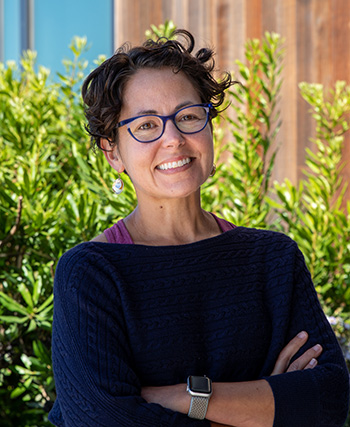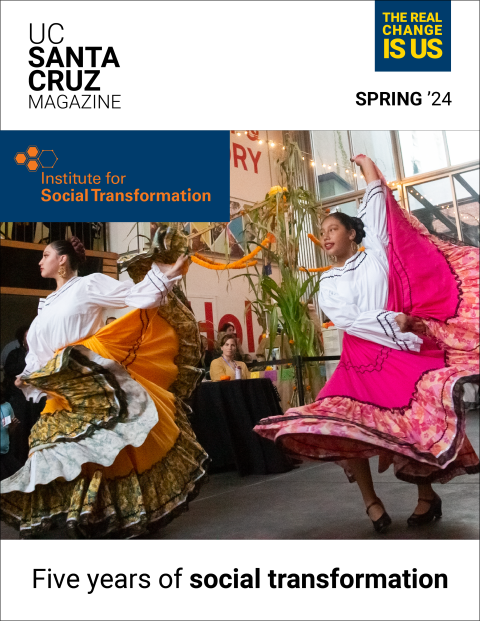Beth Shapiro, professor of ecology and evolutionary biology at UC Santa Cruz, has been elected to the American Academy of Arts and Sciences, one of the nation’s oldest and most prestigious honorary societies.
Shapiro was among nearly 270 new members of the academy announced this week, including author Zadie Smith, songwriter and actor Lin-Manuel Miranda, and climate scientist Katharine Hayhoe. Shapiro joins 28 other UCSC faculty who are fellows of the academy.
A leader in the field of paleogenomics and ancient DNA, Shapiro uses genetic material recovered from the remains of plants and animals that lived long ago to study evolution and explore how species and ecosystems have changed over time. She is a Howard Hughes Medical Institute (HHMI) investigator and HHMI professor, and she leads the UCSC Paleogenomics Lab with Ed Green, professor of biomolecular engineering.
Shapiro’s lab develops techniques to recover increasingly trace amounts of DNA from museum, environmental, and forensic samples, and then uses these data to study how species and ecosystems evolved through time. She is particularly interested in understanding environmental changes in the past and learning more about the changing human footprint on our planet. Her findings can help inform present-day decisions related to the conservation and management of endangered species and habitats.
A 2009 MacArthur Fellow, Shapiro is also an award-winning popular science author and communicator who uses her research as a platform to explore the potential of new genomic technologies for conservation and medicine. Her most recent book, Life as We Made It (Basic Books, October 2021), explores the genetic modification of living things in the context of history, archeology, paleontology, and genomics.
Founded in 1780, the American Academy of Arts and Sciences is both an honorary society that recognizes and celebrates the excellence of its members and an independent research center convening leaders from across disciplines, professions, and perspectives to address significant challenges. Current members represent today’s innovative thinkers in every field and profession, including more than two hundred and fifty Nobel and Pulitzer Prize winners.



